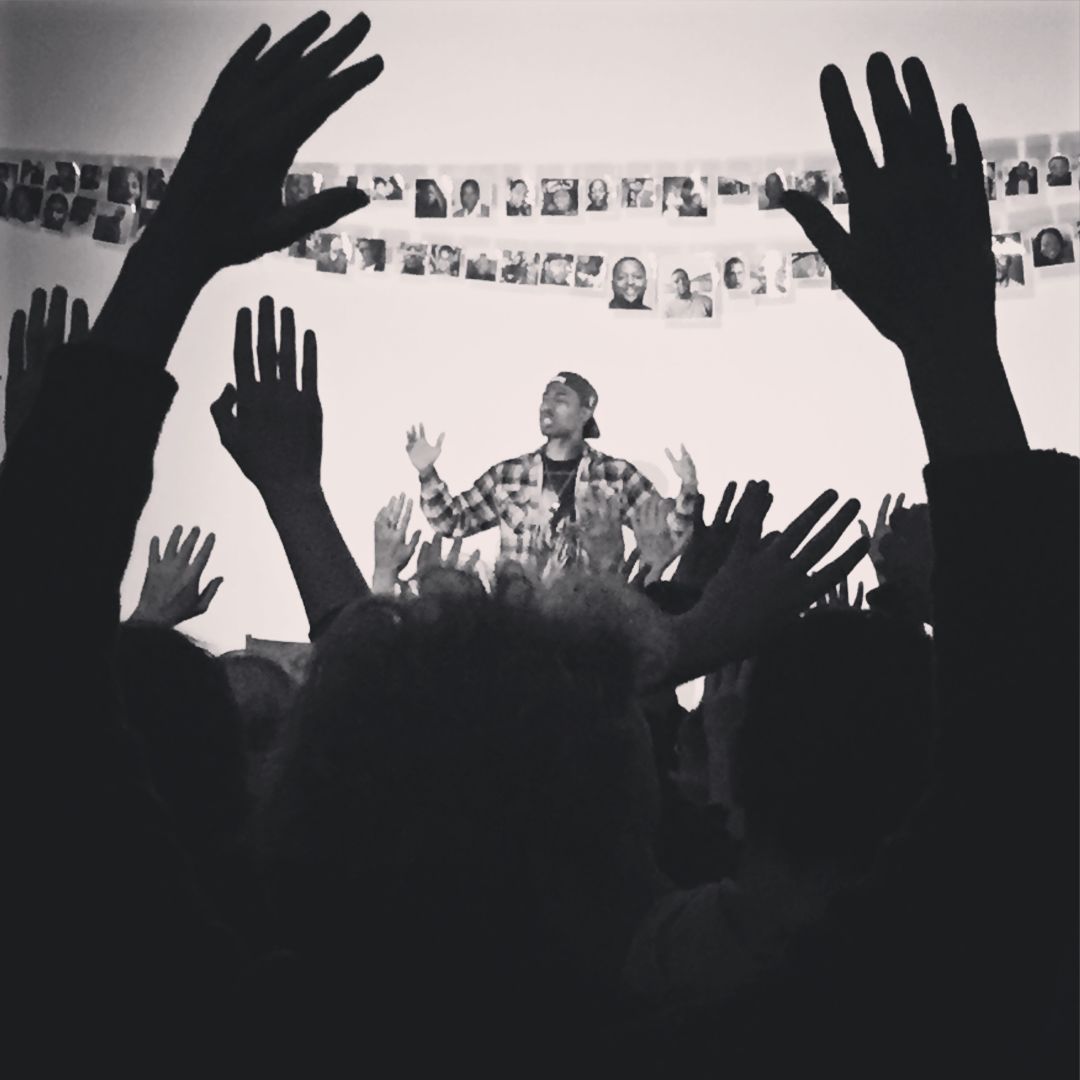What Happens When 7 Black Playwrights Take On Race and Police Violence in America?

Image: Courtesy Red Door Project
In 2014, the New Black Fest—a New York nonprofit that supports new work by black playwrights—organized the first performance of Hands Up in response to the police shootings of Michael Brown in Ferguson, Missouri and John Crawford III in Beavercreek, Ohio, among others. The presentation, which has since traveled across the nation, showcases the work of emerging black playwrights from diverse backgrounds in a series of 10- to 15-minute monologues.
Two years on, as the US continues to reel from the deaths of Alton Sterling and Philando Castile (as well as the tragedy in Dallas), the issues addressed in Hands Up feel more relevant than ever. This weekend, Hands Up comes to Portland courtesy of the Red Door Project, directed by Kevin Jones and with a number of local cast members. Both shows are sold out, but we caught up with five of the seven playwrights to hear why we all need to bear witness.
Nathan Yungerberg on why Hands Up is important now:
Hands Up is crucial at this point in time because our country is a pressure cooker right now and we need plays like this to let some steam out. We need spaces where people have to sit and listen even if it makes them uncomfortable, where they can’t immediately respond with their perspective and then miss the message being delivered. We need authentic raw stories that were born out of pain to start a path to healing. We need the truth.
Dennis Allen II on what audiences will take away from the performance:
Witnessing emotions firsthand is key to providing a window into one's humanity and recognizing humanity is instrumental in valuing life. It is rare to get an opportunity to witness unfiltered emotional truth with the specificity that these monologues provide and that is important because it is through specificity that we connect universally.
Nambi Kelley (the only female playwright in the group) on why she got involved in 2015:
News had just hit about Sandra Bland's death. I was eager to contribute my voice to the project to provide female context. Police brutality against people of color is an epidemic. We need to address these issues and engage in conversations and tactics that can bring an end to this painful part of our history.
Nathan James on representing diversity:
Hands Up shows the many different types of black people there are in this country. All of the playwrights are completely different people. The anger and frustration in my monologue is followed by a black gay man, Nathan Yungerberg, who had an entirely different experience growing up. It is not all one-noted, and shows the different types of layers there are in our communities. Some things will be hard to swallow, some things will be relatable. Hopefully audiences can leave this evening of work with a greater understanding of how black people actually feel (which is not all the same), and hopefully it can prevent us from constantly being seen as one monolith.
Idris Goodwin on getting involved with Hands Up:
I have long admired the New Black Fest and Keith Josef Adkins’ work to use theater as a galvanizing force. I would have written them 100 monologues if invited. I had no idea it would be utilized in so many different communities around the country. It's a great honor and yet a sobering and tragic reality that the piece only increases in its relevance and resonance.
Hands Up is at 7 p.m. Friday–Saturday at Wieden & Kennedy. Sold out.
